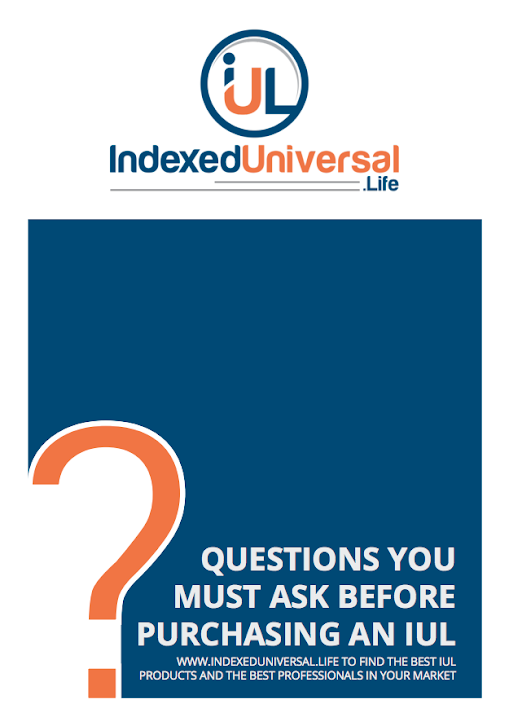IUL Vs Whole Life
Indexed Universal Life Insurance vs. Whole Life Insurance
If you compare indexed universal life insurance versus whole life insurance, it is important to understand how each works and how they may work for you and your specific financial needs. Because, even though both IUL and whole life are types of permanent life insurance, the way that they operate can differ – in some cases, substantially.
Whole life insurance is considered to be the most basic form of permanent life insurance. Whole Life Insurance policies provide both death benefit coverage and a cash value component.
If you own a whole life insurance policy, the amount of your premium payment is locked in and guaranteed never to increase – even as you age or if you contract an adverse health issue in the future.
Likewise, the amount of the death benefit on a whole life insurance policy will not decrease, so your loved ones know that they will receive a certain amount of tax-free death benefit if the unexpected occurs.
The cash value in a whole life insurance policy grows at a consistent interest rate set by the insurance company. And, the funds that are in the cash value component of a whole life insurance policy are allowed to grow tax-deferred.
This means that there is no annual tax due on the policy’s gains as long as that growth stays within the policy. This deferral allows the funds to compound over time. However, this interest rate may not be guaranteed – and it is usually quite low, so even though the cash value is growing, the rate of this growth may not beat, or even meet, inflation.
As with other types of permanent life insurance, whole life insurance policyholders can access their cash value either through loans or withdrawals. And, even though these loans or withdrawals are not required to be paid back, any unpaid balance – including interest – will be charged against the amount of the death benefit that is ultimately paid out and the death of the insured.
Indexed universal life insurance (IUL) is also a form of permanent life insurance. Similar to Whole Life, this type of policy offers guaranteed death benefit protection, as well as cash value accumulation. One of the biggest differences you will find when comparing whole life insurance vs. IUL is how the interest is calculated on the policy’s cash value.
This is because the return within an IUL policy is based on an underlying market index (typically up to a stated cap), such as the S&P 500 or the DJIA (Dow Jones Industrial Average). Because of this, the returns within an IUL policy can be higher – sometimes much higher – than that of a whole life insurance policy that only calculates the interest on a set rate.
The funds that are in an IUL policy’s cash value are also protected from market downturns. This is because if the index(es) begin tracked incur a negative return during a given time period, the performance of the IUL’s cash value will typically just be credited as a 0%. So, while there may be nothing credited to the policy during that period, there will also not be a loss – regardless of what occurs in the underlying index(es) or even in the market overall.
The gain in an IUL policy’s cash value component is also tax-deferred, so there is no tax due on the growth of these funds unless or until they are withdrawn from the policy. Like Whole Life, an IUL policy’s cash can also be accessed via withdrawals and/or tax-free policy loans. This can provide you with additional funds that may be used for any purpose, such as supplementing retirement income or paying for a child or a grandchild’s college education.
Which Type of Policy is Right for You?
In deciding which type of life insurance policy is right for you, it can be helpful to discuss your options with a financial professional who is an IUL expert and also well versed in different types of life insurance, therefore, someone who is likely capable of answering any questions you may have.
Is IUL The Right Choice For You?
Search The Best-Rated IUL Experts. Seek Out The Best Advice.
IUL is a Great Potential Solution - The Best Results Require
The Best Advice.

Complete the
Information to
download
We respect your privacy and will never SPAM you.
Thank You! Your eBook has
been emailed to you.
To get the most out of the resources available to you, please enter your Zip Code and connect with the highest-rated IUL Experts. The Best Advice Creates The Best Results.
Thank You for your interest
in our content!
To get the most out of the resources available to you, please enter your Zipcode and connect with the highest-rated IUL Experts. The Best Advice Creates The Best Results.


